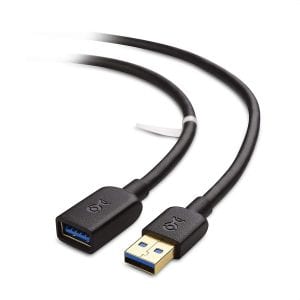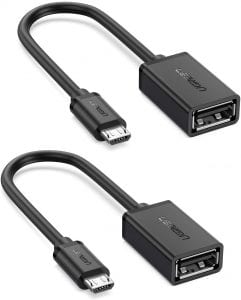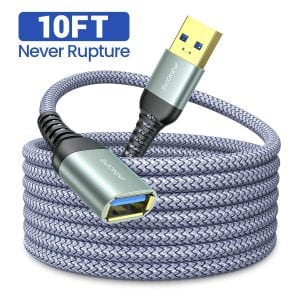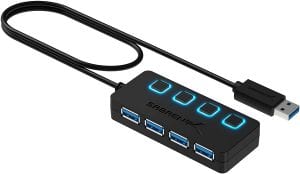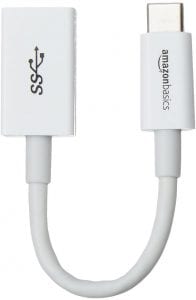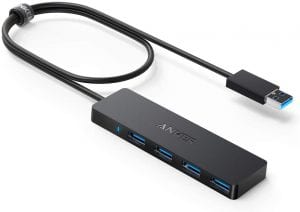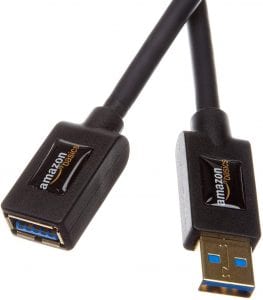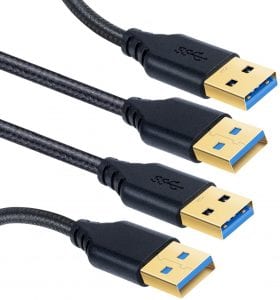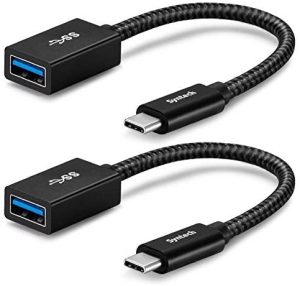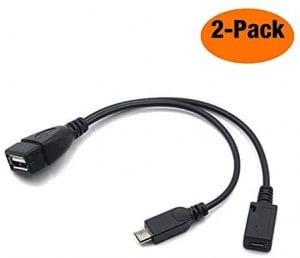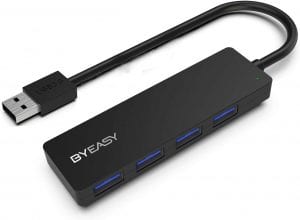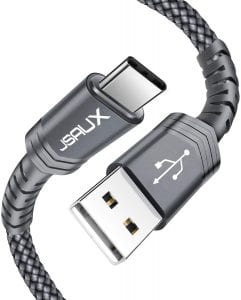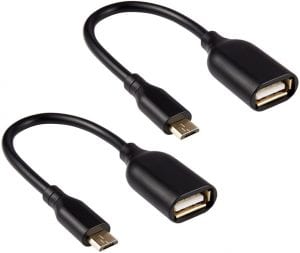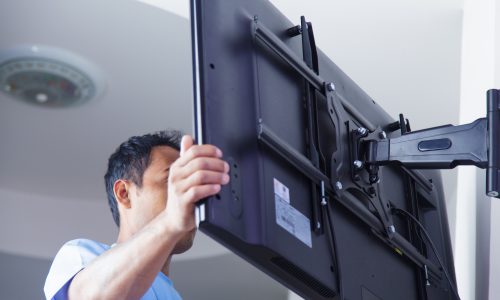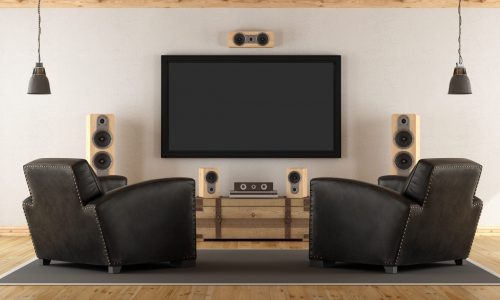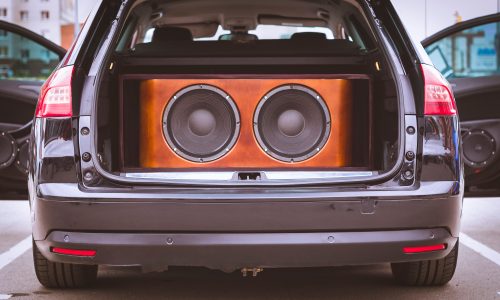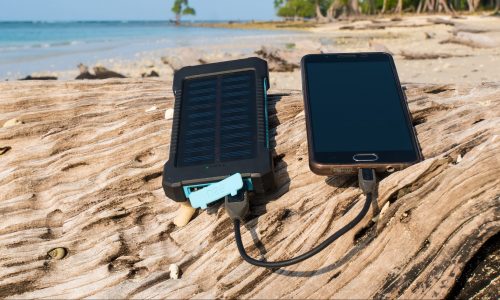The Best USB Adapter Cable
We looked at the top 14 USB Adapter Cables and dug through the reviews from 31 of the most popular review sites including and more. The result is a ranking of the best USB Adapter Cables.
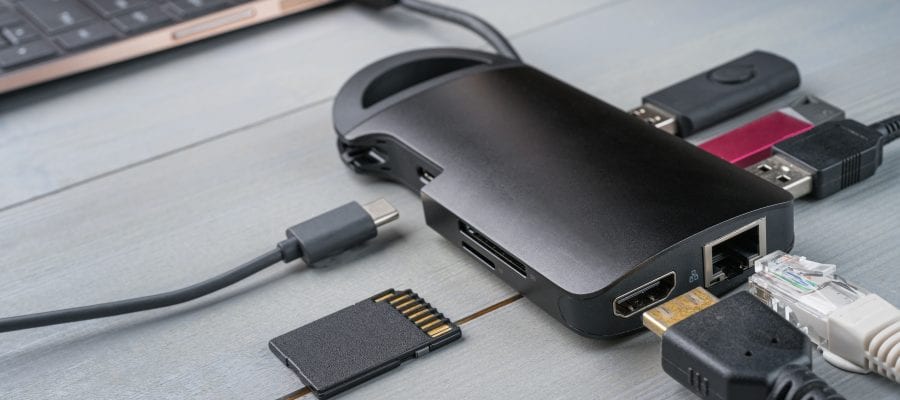
Our Review Process
Don't Waste Your Money is focused on helping you make the best purchasing decision. Our team of experts spends hundreds of hours analyzing, testing, and researching products so you don't have to. Learn more.
Our Picks For The Top USB Adapter Cables
- 1. Cable Matters USB to USB Extension Cable
- 2. UGREEN Micro USB to USB, 2-Pack
- 3. AINOPE Braided USB 3.0 Extension Cable, 10-Feet
- 4. Sabrent Easy On/Off USB Hubs
- 5. AmazonBasics USB Type-C to USB 3.1 Gen1 Female
- 6. Anker SuperSpeed Data USB Hubs
- 7. AmazonBasics USB 3.0 Extension Cable
- 8. OKRAY USB 3.0 A to A Male Cable, 2-Pack
- 9. Syntech USB C to USB Adapter, 2-Pack
- 10. Apple USB-C to USB Adapter
- 11. AuviPal 2-in-1 Micro USB to USB Adapter, 2-Pack
- 12. BYEASY Linux Thermal Design USB Hubs
- 13. JSAUX USB Type C Cable 3A Fast Charging, 2-Pack
- 14. EVISTR OTG Cable for Android Male Micro USB to USB A-Female, 6-Inch
This cable is longer for extra reach, but you won't sacrifice signal strength for the convenience. USB 3.0 compatibility means you can use it with all your favorite peripherals, including keyboards and mice, as well as with items like external hard drives. Transfer rates go up to 5 Gbps, which is 10 times faster than you'd get with USB 2.0.
Extends USB ReachWith 10 feet of length, this cable lets you sit across the room while playing games or streaming to another device.
This USB cable is built to take on the go, with a PVC build and a 4-inch size. Using this cable, you can turn your compatible Androids and Windows phones into PC hosts, hooking them up to your headphones, keyboard or game controller. If you have an additional USB charging cable, you can even use your phone to charge another phone.
PVC Provides Extra DurabilityThis USB cable is made from PVC, ensuring it will hold up through many uses.
This cord is built to last, with multiple layers of sturdy material that can handle being twisted, pinched and bended. At 10 feet in length, it's easy to sit back on the sofa and enjoy your favorite games while your phone is charging. You'll also get sticky buckles shipped with the cable to help you easily shorten the cable's length if necessary.
Bend-Resistant DesignAluminum foil shielding and a nylon braided jacket protects a tinned copper core, enabling this cord to survive bends and pinches.
Equipped with four USB 3.0 ports, this small hub has a switch on each port so you can turn them on and off as needed. It can handle devices that don't need to charge, and built-in lights help you see which ports are active.
Another Great ChoiceThis USB hub lets you control individual ports and is small enough to comfortably use with most devices.
Buying Guide
USB cables have become a must-have item for every consumer. Used for everything from connecting your keyboard to your computer to charging your mobile device, you’ll probably need to have one on hand if you have a computer.
But when it comes to USB cables, not all are created equal. The first thing you’ll need to do is determine exactly the connectors you’ll need. A USB-to-USB cable has a male connector on one end and a female on the other. You’ll plug one end into your peripheral and another into your computer, your car’s USB port or whatever other source you’re using.
Another type of USB cable is a Micro USB-to-USB cable, which works with the small connectors found on a variety of portable devices. You’ll see these on chargers, as well as on Android devices, among many other items. There’s also the USB Type-C-to-USB connector, which you’ll need if you have an Apple computer.
As you start shopping, you’ll see speed also advertised. USB 3.0 is the current standard, although there are multiple generations of it. It boasts data transmission speeds up to 10 times faster than its predecessor, USB 2.0. USB4 debuted in 2019, bringing transmission speeds up to double what you’ll get from USB 3.2 Generation 2×2.
The biggest thing to understand about all these versions of USB is that they’re backward compatible. You won’t have to upgrade any devices to move to USB 3.0 or USB4. However, if you buy a device with a Micro USB or Type-C USB port, you’ll need an adaptor to go from the standard USB to this special type.
Each generation of USB strives to provide faster data transmission speeds for an overall better user experience. Although it may seem that special technologies like Micro USB or Type-C aim to force consumers to buy new cables, in truth, manufacturers simply want to provide the same functionality with a smaller port. As devices like smartphones and phone chargers became smaller, demand increased to have a way to shrink ports down. For Apple, the change allowed the company to shrink down the thickness of its laptops and have a port that works both to power the device and to communicate with external devices.
Why we recommend these usb adapter cables?
Products Considered
Products Analyzed
Expert Reviews Included
User Opinions Analyzed
Our experts reviewed the top 14 USB Adapter Cables and also dug through the reviews from 31 of the most popular review sites including and more. The result is a ranking of the best of the best USB Adapter Cables.
DWYM is your trusted roduct review source. Our team reviews thousands of product reviews from the trusted top experts and combines them into one easy-to-understand score. Learn more.
The Best Bang For Your Buck
UGREEN Micro USB to USB, 2-Pack
Key Takeawy
This USB cable is built to take on the go, with a PVC build and a 4-inch size. Using this cable, you can turn your compatible Androids and Windows phones into PC hosts, hooking them up to your headphones, keyboard or game controller. If you have an additional USB charging cable, you can even use your phone to charge another phone.
What other experts liked
What to Look For
- The length of the cable is worth considering. A longer cable comes in handy if you want to be able to continue to use your device while it’s connected. But a good case can be made for a smaller cable, especially if you don’t want to deal with long cables around your desk.
- Like other cables, USB cables can wear out. They may be tossed into bags or accidentally trapped under a heavy piece of electronics. For that reason, some manufacturers will put their cables through bend testing to make sure they can withstand the most extreme circumstances.
- Some cables have connectors that tend to be tough to extract from the port. This not only becomes frustrating, but it can wear out the connector as you pull on it.
- Multiport USB connectors are available to make your life easier. If you have multiple devices you need plugged in at once, this is a great investment.
- Even if you choose a shorter USB cable, one that is at least a few inches in length will give you the wiggle room you need.
- As tempting as it can be to save money by buying inexpensive USB cables, when you’re dealing with heat and wires, it’s always best to be careful. For best results, stick with trusted manufacturers.
- You’ll likely want to take your USB cable on the road with you at some point. You may even want to carry it back and forth to work every day. If that’s the case, store it in a pocket or a pouch that keeps it safe from other items in your purse or bag.
More to Explore
It’s hard to remember a time before USB ports, but the technology didn’t come along until the mid-1990s. Prior to that, computers had ports called “serial” and “parallel,” which were considerably larger and located on the back of the computer. This technology had its limits—parallel ports could only transfer data at about 100 kilobytes per second and serial ports were stuck between 115 to 450 kilobytes per second. Universal Serial Bus (USB) technology was a collaboration between seven different companies that were leaders in computing at the time: Compaq, IBM, Intel, Microsoft, NEC, Northern Telecom, and Digital Equipment Corporation (DEC). Just two years after those companies came together to bring the technology to market, more than 500 USB products were in development.

